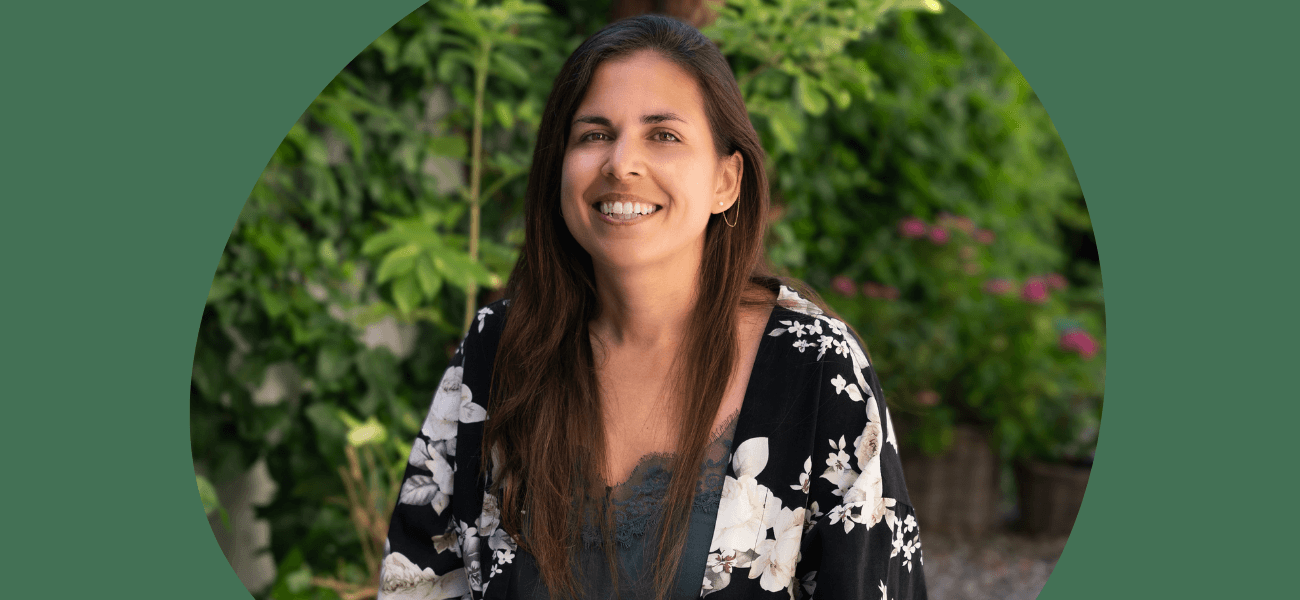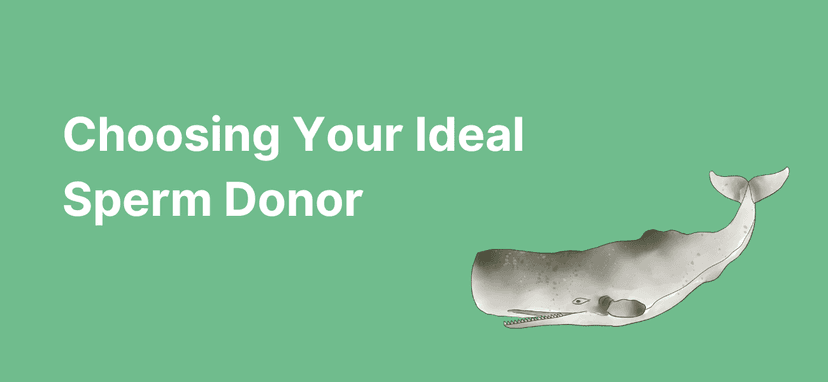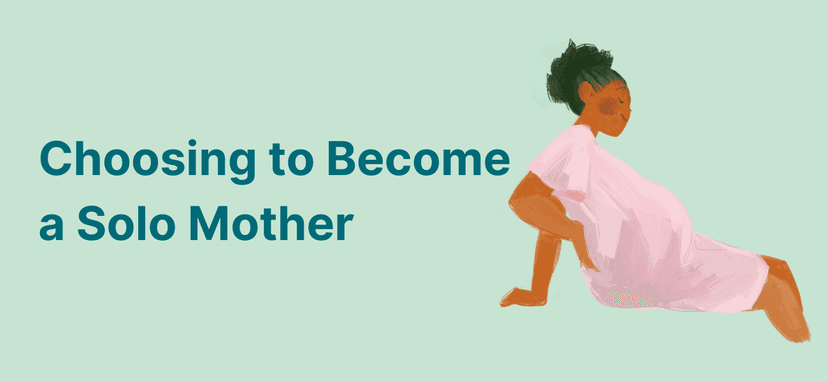What I Learned About Finding a Sperm Donor: Insights From a Year in the Fertility Industry
What a year in the donor space taught me about building families with intention

Written by
Sofie Hafström Nielsen
Published on
07 Sep 2025
Over the past year, I’ve had the privilege of working full-time in the donor conception space while building Y factor. It’s been an eye-opening experience, not just from a professional standpoint, but also on a personal level. I’ve spoken with people all across the space and seen the incredible mix of hopes, fears, and practical challenges that come with this family-building path.
One question I often ask myself is: “If I were looking for a donor myself, how would I approach it?”
And for sure, I have learned so much that my answer today is very different from one year ago. Every journey is unique, and there is no ONE right way. But based on my experiences the past year, here’s how I would personally go about it, if I were looking for a donor.
1. Looking beyond genetics
Before I started working with sperm donation, I would most likely have opted for a bank donor, because this route is more well-known, acknowledged, and on the surface seems the safer way. However, now I know more about alternative routes and potential risks associated with each.
I believe we inherit more than just physical traits from our biological origins. Genetic traits and health history matter, of course, but I wouldn’t want to make this decision solely on eye colour, height, or medical records. Shared values, mutual respect, personal chemistry, and a sense of reliability would weigh just as heavily. Bank donor anonymity removes the possibility of truly vetting a donor on a deeper personal level, and because of this, I would look for a known donor.
2. Start with clarity about my needs and values
Before beginning my search, I would reflect on what I am looking for in the donation. Post donation relations can take many shapes and forms, and there is no “one-size-fits-all”.
Do I plan on telling my child they are donor-conceived?
Do I want to know as little as possible about the donor or prefer him taking a role in the child’s life?
Do I aim for connecting with siblings from other donations, or keep our family circle closed?
I’ve come across many stories of people who discovered later in life that they were donor-conceived and felt a deep breach of trust. Because of this, I would want to be as open as possible with my child.
In my case, my husband would be the father, and it would be equally important that he felt comfortable with our approach.
Having this clarity upfront is essential; it’s about creating shared expectations that give everyone involved, including the future child, stability and security.
3. Using a friend or a stranger?
Next, I’d need to decide whether to ask someone we already know, like a family member or a friend, or to seek out a stranger. There are pros and cons to both routes.
While using a friend might sound simpler, I believe it carries higher potential tension down the road. Shared history, emotions, and social circles can complicate boundaries and expectations when a child is involved. Even if everything starts well, disagreements later on could damage both the friendship and the family stability.
I would therefore lean towards finding a donor who starts as a stranger, but with the intention of building trust and clarity together. The fresh foundation can be shaped by clear agreements and mutual respect from the beginning.
4. Clarity and honesty will attract the best matches
There are many channels to finding a known donor, with big forums on Facebook and Reddit, along with some dedicated platforms built for this purpose.
Regardless of the channel, I’d aim to keep it honest and personal, while making three things clear:
Who we are
- pictures and a short introduction to myself, my husband, and even our home or dog, so the donor could see the environment a child would grow up in
Why we need a donor
- explaining our story and where we are in the process
What we are looking for
- to avoid misunderstandings later
I’d look for a donor who was interested in occasional updates, and ideally, willing to answer questions from the child later on. I think this could reduce uncertainty and support my child’s sense of identity.
5. Support, method, and compensation
No one should be navigating this process alone. From the start, I’d involve close friends and family, sharing a shortlist of potential donors to hear their input. Some comments would reflect personal preferences rather than our own priorities, but hearing different perspectives can reveal red flags that we might have missed.
Beyond our own circle, I’d lean on broader communities, others who have been through the process, or professional advisors. There’s a lot of good information out there that can help make the journey feel less overwhelming.
Practical choices also matter, and I think it’s important to reflect on how method and compensation align with your values. I believe intercourse complicates the relationship, and it can have legal consequences in some countries. While bringing the donor to a clinic is medically the safest option, I personally might choose home insemination, as I don’t love clinical settings.* On compensation, I want to show appreciation, and I don’t see an ethical issue in recognising the donor’s time, effort, and the risk he is willing to take. At the same time, I’d not want it to feel like a commercial transaction, so a balance between altruism and fair recognition.
In Europe, banks are not legally allowed to ship sperm to private homes.
6. The hard conversations are difficult for a reason
Going the known donor route comes with more freedom and choice, but also more responsibility. Without a clinic or bank as an intermediary, it falls on you to ensure that health, legal, and financial safeguards are in place. That’s why trust and transparency aren’t optional; they are essential for reducing risk for both parties.
No donor is going to check every single box on my wish list; the key is separating “must-haves” from “nice-to-haves". That would be summed up as the following:
Identity and honesty:
pictures, honest information, and openness to a written agreement
Health & Safety:
medical and family health history, STI testing, and honesty about recent sexual activity
Family & future:
partner awareness, clarity on children and previous donations, and openness to sibling contact
Expectations and boundaries:
agreement on method, compensation, involvement, and moving forward at a pace that allows trust to be built
Values & Chemistry:
empathy, respect for others, and a sense that we get along and can be honest with each other
When these basics are covered, I’d feel confident moving forward. And even if not legally binding in my country, I would still seek legal guidance and document the agreement. Not because of mistrust, but to protect everyone involved, including the child, in the years to come.
Closing thoughts
Thanks to everything I’ve learned over the past year, I would feel far more prepared if I were searching for a donor today. Yet I know it would be a deeply personal, intense, and emotional journey. Not everyone has the time, resources, or patience to navigate it step-by-step, and that’s okay.
What matters most is creating a path built on clarity, trust, and respect, and that is why I find our work meaningful. It’s not just about matching future parents with donors; it’s about creating pathways to shape new families with intention and care.
If you’ve been through this journey yourself, or are considering it, I’d love to hear your perspective. Every story adds to the collective wisdom that helps others find their way.
Latest
From the blog
The latest industry news, interviews and resources.
Grow families, your way

